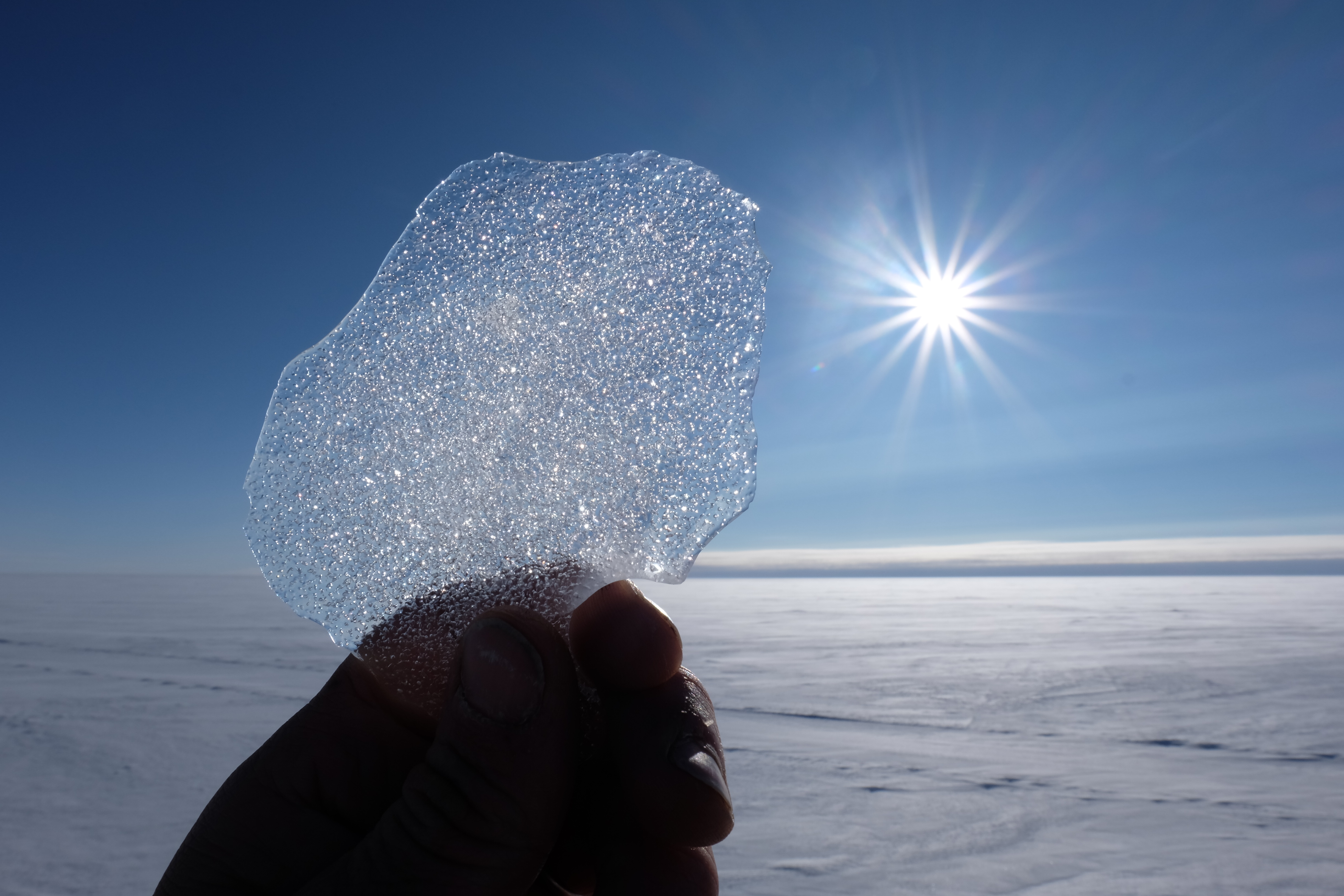Call for applications for a thesis : Evolution of snow and air circulating in the snow beyond the surface of Antarctic ice sheet
General information :
Main place of work : Gif-sur-Yvette
Supervisors : AmaëlleLandais (LSCE, Gif-sur-Yvette) and Patricia Martinerie (IGE, Grenoble)
Contract duration : 36 months
Description of the thesis topic : Evolution of snow and air circulating in snow beyond the surface of Antarctic ice sheet
In ice cores, air bubbles are only trapped in the ice 60 to 120 m under the ice sheet surface at the bottom of the unconsolidated snow or firn. The composition of air and structure of snow is strongly modified during the processes of firn to ice densification and bubble closure entrapment with important consequences to understand ice core climatic and environmental records. In this PhD project, we propose to explore two important effects :
– Thermal effect on the elemental and isotopic composition of the air
This effect will be studied using a firn air diffusion model constrained by new data (isotopic and elemental composition of inert gases and of oxygen) obtained through an Antarctic firn air pumping campaign.
– Modification of the snow structure down to the pore close-off due to snow metamorphism and snow densification
The understanding on how snow microstructure evolves with depth will be addressed using the detailed snowpack model Crocus. Using the snowpack model, we will first investigate the impact of insolation changes on surface snow microstructure. To support the modeling, observational constraints will be obtained from the Antarctica firn air campaigns with a focus here on the deeper part of the firn with analysis of air content and O2/N2 ratio, both in the closed and open porosity of the bubble close-off zone.
Work Context :
DEEPICE is a research and training network on understanding deep ice core proxies to infer past Antarctic climate dynamics. It is funded by the EU HORIZON2020 programme and consists of 10 academic partner organisations from 10 European countries plus 9 collaborating institutions from academia and industry (www.deepice.cnrs.fr). In total 15 early stage researchers (PhD students) will be employed after a competitive recruitment process and work together within the European DEEPICE consortium. Each early stage researcher will be supervised by his/her local main supervisor and a co-supervisor within the consortium. For each of the early stage researcher positions a recruitment panel adhering to strict gender equality and equal opportunity rules will be set up consisting of the two supervisors and a third DEEPICE representative. Selection criteria will encompass the potential as researchers, creativity, level of independence, teamwork ability, knowledge, and communication experience and availability for the intended start date. Start date of the positions can be as early as July 2021 but all positions must be filled by October 2021. The candidate will be employed by CNRS according to standard rules, the monthly gross salary will be ca. 3783€. In addition, an gross monthly mobility allowance of ca. 600€ and, if applicable, a family allowance of 500€ will be paid to DEEPICE early stage researchers.
Additional Information :
The candidate must have a keen interest and solid knowledge in glaciology or (paleo-)climate science with a MSc in (environmental) physics, climate science or a related field. Apart from his/her own research, the candidate will be involved in the extensive DEEPICE training programme including three summerschools and outreach activities and must be willing to spend an extended time at secondments with other DEEPICE partner institutions. The candidate for this position can have any nationality but must not have resided or carried out their main activity (work, studies, etc.) in France for more than 12 months in the 3 years immediately before the recruitment date.
Apply :
Applications must be entered on the CNRS platform
 The federation
The federation Intranet
Intranet








